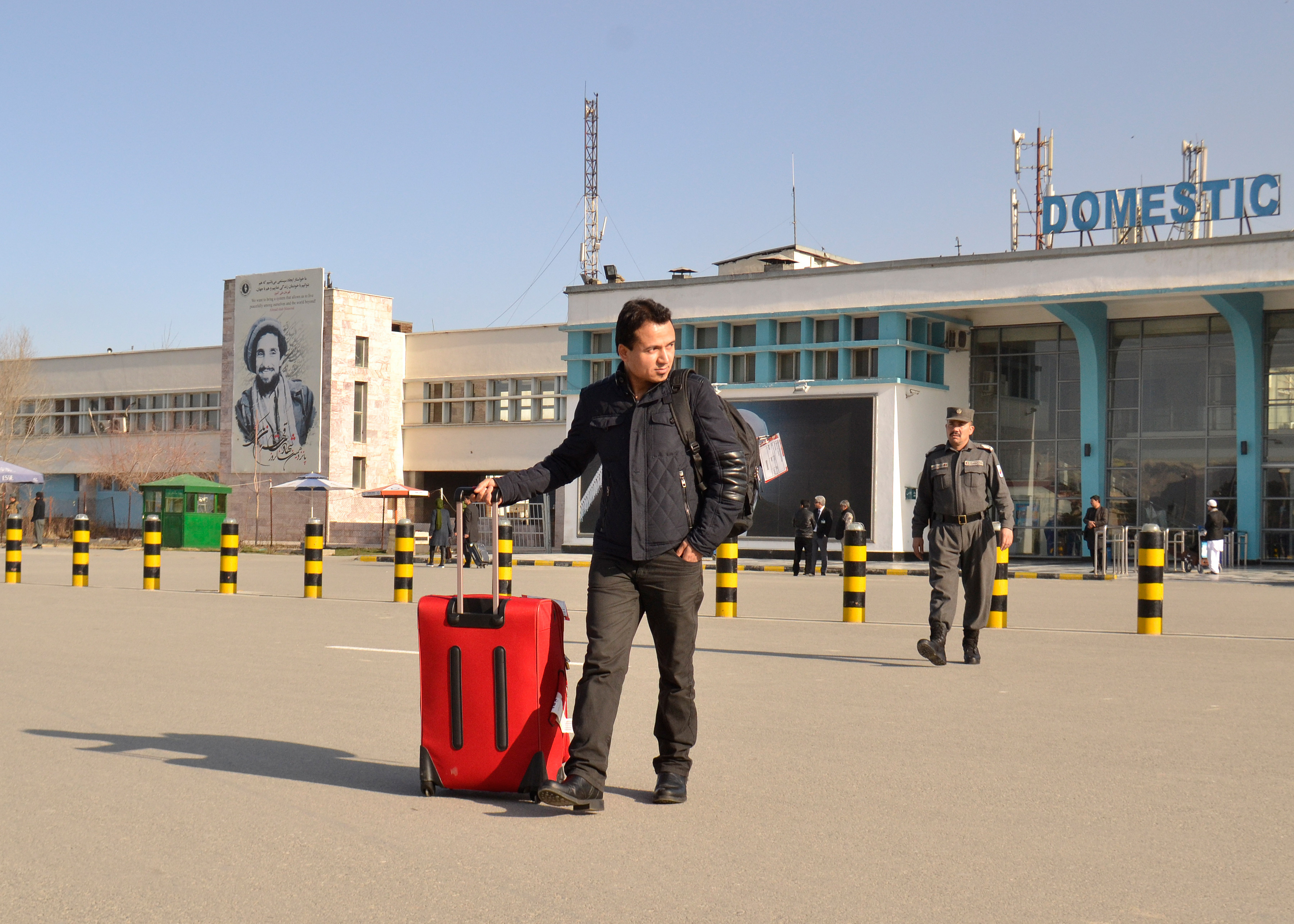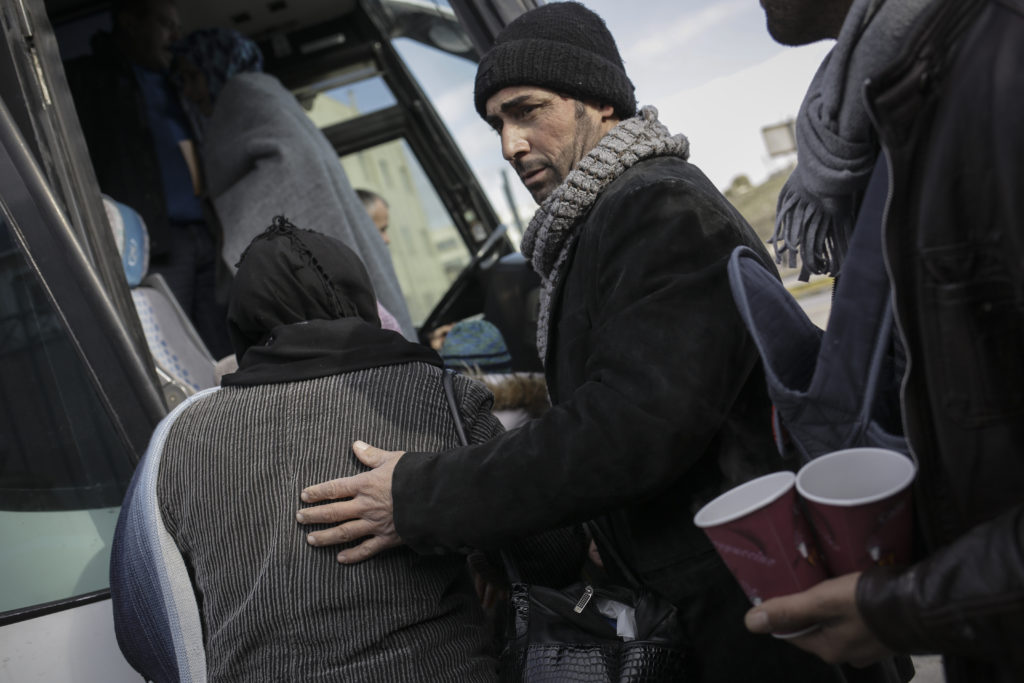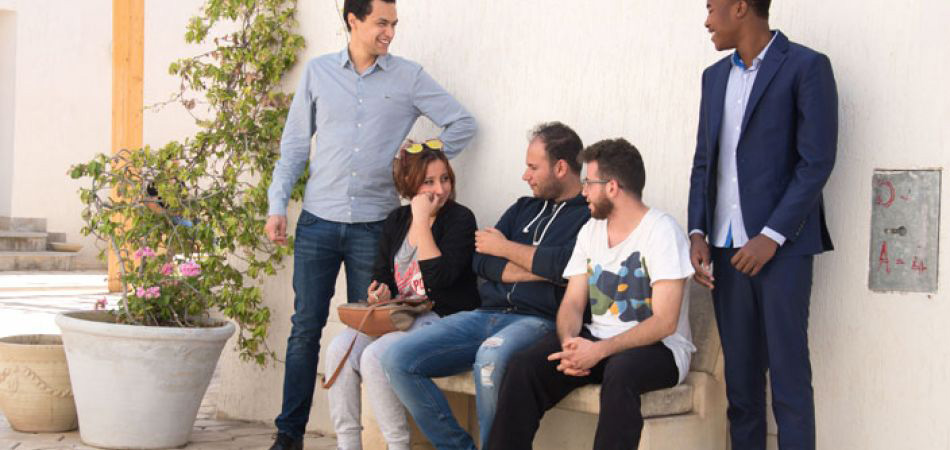Will Germany help you to return to your country of origin?

Yes, there are various programmes supported by the government to help you return to your home country and build a new life there, if you have little chance of receiving protection of if you decide to leave Germany voluntarily.
Since these programmes began 40 years ago, more than 700,000 people from all over the world have received financial or organisational support to voluntarily return to their coun-try of origin or move to a third country willing to accept them.
All information on these programmes can be found at www.ReturningfromGermany.de – here is a preview:
At a glance
- Financial and operational assistance for voluntary returnees (REAG/GARP)
- StarthilfePlus – programme to support a new start in your home country
- Joint Reintegration Services (JRS)
- Thinking of Returning to Kosovo? URA supports you
- Thinking of Returning to Albania? URA supports you
1. Financial and operational assistance for voluntary returnees (REAG/GARP)

For more than 40 years, the German Government and the federal states (Länder) have been supporting voluntary return (or onward migration), through the Reintegration and Emigration Programme for Asylum-Seekers in Germany (REAG) and the Government-Assisted Repatriation Programme (GARP), which cover travel costs and provide a transport allowance as well as financial start-up assistance for migrants of certain nationalities.
Asylum seekers, migrants entitled to protection as well as rejected asylum seekers can be supported. The return counselling centres will help you with your application as you will need to submit documents about your stay and assist you with obtaining valid travel documents.
Eligible persons for assisted voluntary return (REAG/GARP):
Asylum seekers, migrants entitled to protection as well as rejected asylum seekers are eligible for the assisted voluntary return programme REAG/GARP 2.0.
Ineligible people and groups are:
Nationals of EU Member States (except victims of human trafficking and/or forced prostitution) are not eligible for the REAG/GARP 2.0 programme. Nationals of European third countries who are allowed to enter Germany without a visa can receive reduced travel assistance. In the case of the so-called “Dublin procedure” (transfer to another EU Member State), there is no entitlement to receive REAG/GARP 2.0 support.
A requirement to receive assistance is that neither you nor another person is able to pay for the costs of your journey.
Return counselling:
On the information portal on voluntary return and reintegration ReturningfromGermany.de you can use the main search function to find the nearest governmental or independent return counselling centre.
The return counselling centres can be local or state administrations, such as the social welfare office (Sozialamt) and the foreigners authority (Ausländerbehörde), welfare organisations, specialised counselling centres, the United Nations High Commissioner for Refugees (UNHCR) or the International Organisation for Migration (IOM). Return counselling is individual, non-binding and impartial. Your return counselling centre will help you with the application for REAG/GARP 2.0.
The following types of support can be granted within the framework of REAG/GARP 2.0:
- Travel costs (e.g. by plane or bus)
- Travel grant
- One-time financial start-up assistance depending on your nationality
You will find further information on REAG/GARP 2.0 on Returningfromgermany.de
2. StarthilfePlus – Supplementary Reintegration Support in the Country of Origin
Depending on your nationality and your residence status, you can receive:
A: Financial support in the destination country (second start-up assistance after 6-8 months of your return) or
B: Reintegration support in the area of housing or
C: Reintegration support for people with a long-term tolerated stay in Germany
Your return counsellor can apply for the assistance together with your REAG/GARP 2.0 application.
Telephone hotline:
The returnee hotline of the Federal Office for Migration and Refugees (BAMF) will inform you about support programmes, your nearest counselling centre and the return process. Its staff can also provide you with information on reintegration programmes in your country of origin.
3. Joint Reintegration Services (JRS) programme
The Joint Reintegration Services (JRS) programme provides individual reintegration assistance to returnees after their return. JRS assistance is currently only available in a number of selected countries of origin.
Return counselling centres:
The following groups are eligible for JRS assistance:
a) Third-country nationals whose asylum application or application for another form of protection has not yet been legally rejected
b) Third-country nationals who do not (or no longer) fulfill the requirements for legal entry or legal residence in Germany or in another EU member state (e.g. people obliged to leave the country or with a tolerated stay).
Support is available for both, those returning voluntarily and those who have been forcibly returned.
4. Are you thinking of Returning to Kosovo? URA is there to support you
URA offers eligible returnees, regardless of their ethnicity or the circumstances of their re-turn, concrete, practical support on the ground as well as social and psychological counsel-ling to help them reintegrate into Kosovar society. In addition, the project offers financial support and grants, e.g. to cover the costs of initial housing, rent, wages and business start-ups, special language courses or school materials. URA means “bridge” in Albanian and is financed by the German government and several federal states (Länder).
5. Are you thinking of Returning to Albania? URA is there to support you
The project focuses in particular on the often very demanding initial phase immediately after the arrival in Albania. It helps those returning to settle in more easily and to generate individual prospects for a new beginning. To this end, URA Albania offers personal support based on trust as well as various counselling services and benefits in kind.

